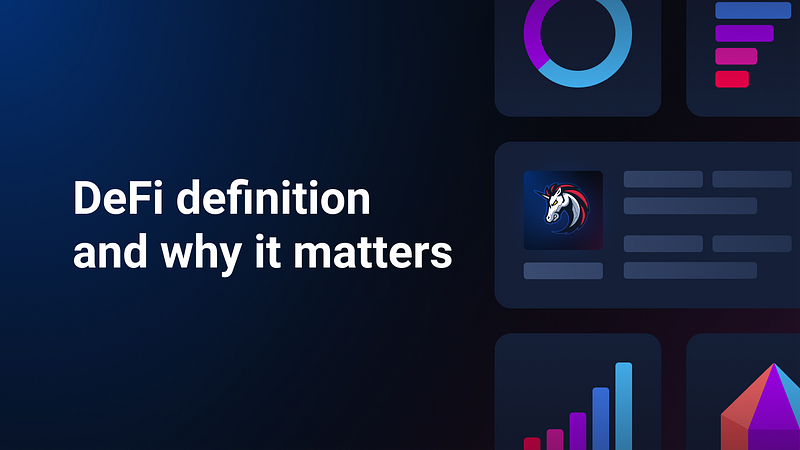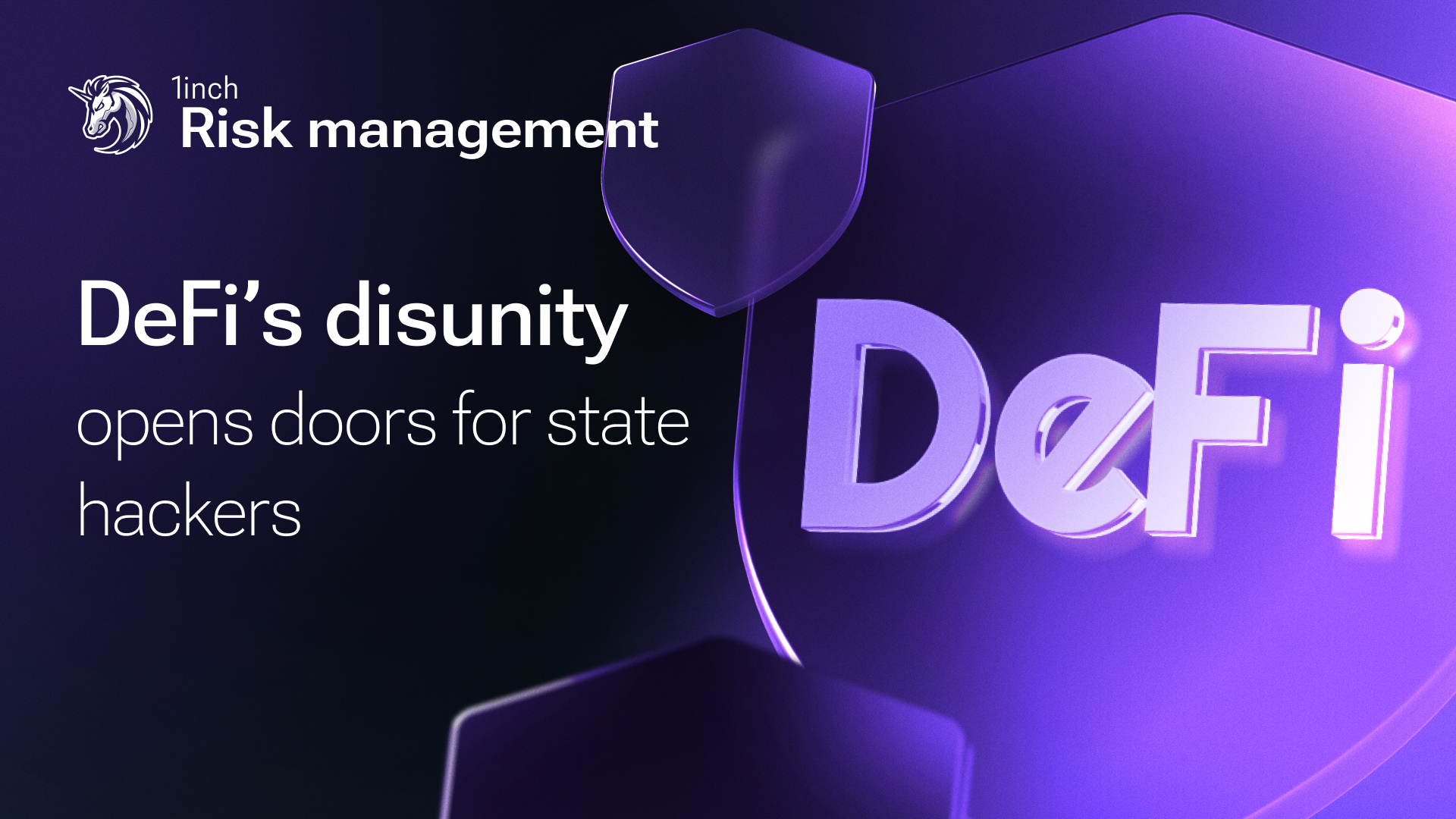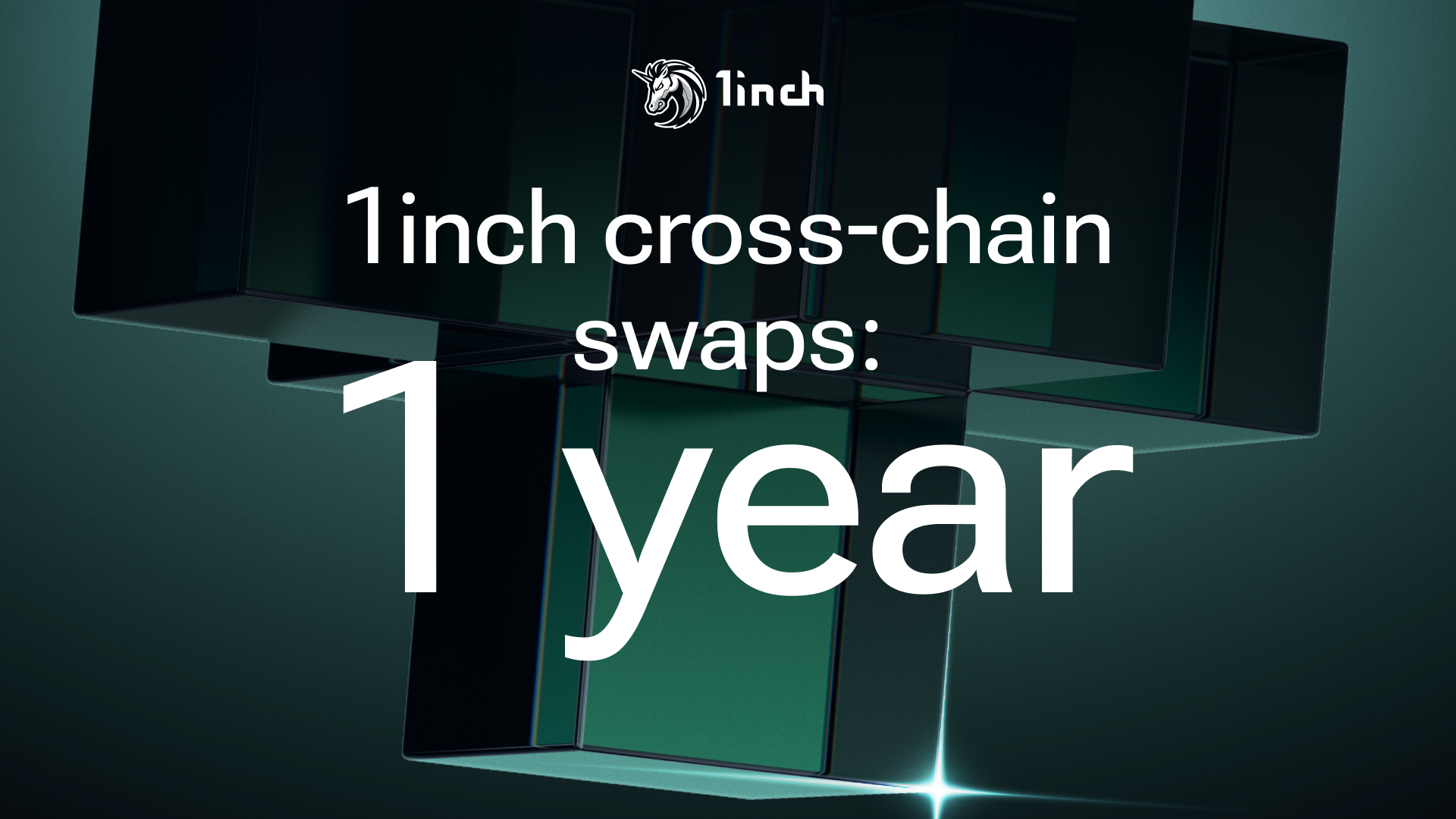DeFi in crypto: what is it, and why does it matter now?

If you think about it, there are similarities between decentralized finance (DeFi) and the arrival of cloud storage in 2006. Back then, the big idea was the creation of a simple, scalable service that could easily plug into existing software.
To some extent, the DeFi segment mirrors this idea, making hefty waves of innovations the likes of which have never been seen before.
DeFi was one of the major drivers behind the crypto revival in 2020. Still, it remains one of the segment’s underdeveloped areas.
As DeFi products pick up steam and billionaire entrepreneur and investor Mark Cuban names DeFi as an industry with a chance to explode, the monthly volume of decentralized exchanges soared from just $39.5 mln in January 2019 up to $173 bln in May 2021.

DeFi: what is it?
But what is DeFi, and how does it work? Why has it grown so much lately, making a major impact on the crypto segment in general?
It is crucial to note that the implementation of new solutions in financial projects is not new. They facilitate most transfers of value. However, third-party interference is still needed to navigate legislation in different countries, operate within the economy’s main sectors and follow various models making transfers possible.
DeFi uses top-notch solutions to remove centralized models and provide financial services anywhere and to anyone. DeFi services and apps are mostly based on public blockchains. They replicate existing offerings built on the rails of common technology standards, offering innovative alternatives to existing financial services.
At the same time, DeFi apps provide consumers with more control over their funds through personal wallets and trading websites that work with customers instead of institutions.
While DeFi is based on the blockchain, its applications in the financial world are quite broad. DeFi projects can cover a range of areas, including:
- Prediction markets;
- Derivatives;
- DAO;
- Insurance;
- Exchange and liquidity;
- Credit and lending;
- Stablecoins;
- Marketplaces.

Advantages of DeFi
Here are some key advantages that decentralized finance can offer.
- It is useful for countries with underdeveloped financial systems.
- There is no need for control. Rules are enforced by smart contracts. Once launched, a DeFi app can work on its own.
- DeFi is inclusive. Anyone can create and use a dApp. In traditional financial systems, you have to get permission from an intermediary to carry out almost any operation. To withdraw a penny from your account, you must wait for bank approval, while DeFi users can interact with financial services without permission.
- DeFi projects are available 24/7 and offer the best rates both for borrowers and lenders. Before DeFi, if you needed a loan, you would have to go to a financial organization (for example, a bank), and a lot of time would be wasted. With DeFi you can get a loan with a few clicks from anywhere and at any time as long as you have an internet connection.
- Open source is integrated. As well as blockchain, it is more convenient, reliable, and available for modification and redistribution.
- DeFi eliminates human errors on a day-to-day basis.
- A “healthy” system. COVID-19 has shown that traditional financial organizations are very vulnerable to global shocks as they require direct contact between individuals. According to Nariman Behravesh, chief economist at the consulting firm IHS Markit, this pandemic has caused an economic shock three times worse than the financial crisis in 2008. Conversely, there is no need for physical contact to make decentralized financial systems operate.
Why is it so popular?
Coin issuers and traders are flocking to DeFi projects because they are preferred platforms for crypto strategies, such as yield farming, where some traders are collecting high returns by pooling and lending cryptocurrencies in exchange for interest and fees, while also often being awarded additional coins as incentives.
Paul Veradittakit, a partner at Menlo Park, California-based Pantera Capital Management LP, said: “We can really see decentralized exchanges make a huge dent in the market and potentially overtake centralized exchanges.”
Unlike most traditional crypto exchanges, a DeFi project does not charge issuers to list new tokens and generates revenue through transaction fees. Similarly, it does not check on customers and their identities, which most traditional crypto exchanges started to do because of regulatory pressure to detect and combat money laundering and other illicit activities.
DeFi functions as an open financial network that is multifunctional, transparent and decentralized.
DeFi’s performance in 2021 and its openness put the entire blockchain field on the radar screens of traditional investors. According to DeFi Pulse, the total USD value locked in DeFi surpassed $80 bln. This corresponds to more than 500% growth between January and August 2021.
So, such projects and individuals who are willing to make money have boosted the whole sphere.
Like during the initial coin offering boom that helped fuel the bitcoin-led crypto segment four years ago, this led to the creation of hundreds of new apps and accompanying tokens in recent months.
Is DeFi secure?
No, it is risky. Many believe that DeFi is the future of finance and, therefore, investing in this segment could lead to massive gains. But it is hard for newbies to pick promising apps from a wide range of those constantly popping up on the market.
Since DeFi became all the rage last year, there have been several noticeable fiascos. For instance, the meme coin YAM slumped significantly and burned, sending its market capitalization from $60 mln to zero in less than an hour. Other DeFi apps, including Hotdog and Pizza, faced the same issues, and many customers lost substantial funds as a result.
On the tech side, smart contracts are robust, but they can not be changed once the rules are integrated into the protocol, which could also lead to risks.
When will DeFi go mainstream?
While more and more people are involved in DeFi applications, it is hard to say when they will become part of most people’s lives. Much of that depends on who finds them useful and why. Many believe that various DeFi projects have the potential to become the next Robinhood, drawing in hordes of new users by making financial applications more inclusive and open to those who do not traditionally have access to such platforms.
But tech behind DeFi apps is new, experimental and not without problems, especially with regard to security or scalability.
Developers hope to eventually rectify these problems. Ethereum 2.0 could tackle scalability concerns through a concept known as sharding, a way of splitting the underlying database into smaller pieces.
The future of the industry
Despite all the advantages of DeFi, a killer app has not yet arrived. In part, it could be due to resistance from the traditional financial system, as financial authorities and companies are not ready for integrating new tech. They see DeFi as a threat, not an opportunity.
But this could change soon, and the future of decentralized finance looks quite prosperous.
Unfortunately, the DeFi boom has also attracted a bevvy of scammers and swindlers. CipherTrace, a cryptocurrency intelligence company that delivers cryptocurrency AML compliance solutions, says that by July 2021 total losses from illicit activities within the DeFi industry reached more than $361 million, already making up three-quarters of the total hack volume this year — a 2.7x increase from 2020. DeFi-related fraud continues to rise, as well. At the time of the CipherTrace’s August 2021 report, DeFi-related hacks accounted for 54% of major crypto fraud volume, whereas last year DeFi-related fraud only made up 3% of the year’s total.
But it is fair to say that the DeFi industry faces the same problems as the crypto space as a whole. It is still in its early stages, with a huge potential for further evolution. And DeFi is probably the only sub-sector within crypto that has provable traction and a clear value proposition.
That is all for now. Stay tuned for more helpful content coming soon!




























